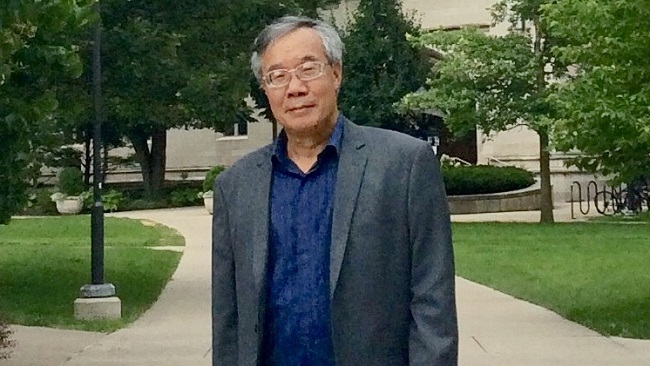“It Takes a Village to Raise a Child”
 Mr. Trần Đức Cảnh, former Director of Training and Human Resource Development of Massachusetts (USA).
Mr. Trần Đức Cảnh, former Director of Training and Human Resource Development of Massachusetts (USA).
The Ministry of Education and Training has recently announced a public consultation for the draft amendment of some provisions of the Education Law and the Higher Education Law. However, the reality has shown that the more amendments are made, the more confusing things become! How can we make more comprehensive changes, address the most critical bottlenecks, and move towards a humane and liberating education system remains a significant question.
TheLEADER conducted a special report on education with the participation of Mr. Trần Đức Cảnh, delving into the hottest issues in secondary and higher education today, meaningful educational investment models, and more comprehensive critiques from both international and Vietnamese perspectives.
|
Mr. Trần Đức Cảnh, former Director of Training and Human Resource Development of Massachusetts (USA), was a member of the Board of Trustees for the Northeastern University System and has served as an admissions advisor for Harvard University for many years. He was appointed by Prime Minister Nguyễn Xuân Phúc to the National Education and Human Resource Development Council for the 2017 – 2021 term. Although he has lived abroad for more than four decades, he has always been concerned with educational issues in his home country and has helped connect U.S. educational programs and scholarships with Vietnam. |
Part 1: It Takes a Village to Educate a Child
Education is currently a hot topic at every level, from preschool, primary, secondary, to higher education, causing great concern among the public. It seems that Vietnam is facing a comprehensive challenge in educating a child to become a fully-rounded person?
Mr. Trần Đức Cảnh: The African proverb “It takes a village to raise a child” holds great significance for Vietnam at this time. The lack of coordination among educational departments, especially from primary to secondary education, is making the issues more complex. To solve the problems in education, long-term solutions are needed, and they must come from multiple sources: families, schools, society, departments and the Ministry of Education and Training, and local authorities…
In the past two decades, we have seen the emergence of several international and private schools that partially meet the diverse needs at the primary and secondary levels. The scale of international and private schools has grown relatively strong in large cities, but in provinces, public schools dominate, leaving little or no choice.
For a long time, Vietnam’s education system has been centered around schools rather than students. Due to the rigid and dogmatic nature of Vietnam’s public education system, it lacks flexibility and diversity, often failing to meet societal needs, leading to gaps.
Meanwhile, the drive for innovation is weak, partly because of concerns about “responsibility” or fear of entanglement in bureaucratic mechanisms. As change is slow, the issues in general education are becoming more urgent and complex.
Some of the prominent issues in education today are not new; however, the media’s attention and the rapid growth of social networks in recent years have significantly contributed to raising awareness of these hot issues, which is positive… On the other hand, it also creates additional anxiety and frustration for families and society.
Society is still in a transitional phase, with a demand for more dynamic development, far ahead of structural changes, and social mechanisms, leading to inevitable conflicts.
Therefore, to effectively address educational issues, there must be a flexible interaction mechanism among schools, families, and the community on related matters. A “service-oriented” government mechanism will solve many major social problems, not just in education.
Is it the lack of interaction between students, families, schools, the community, and the government that causes a child to act differently at school than they do outside?
Mr. Trần Đức Cảnh: To quickly and effectively solve local educational issues, schools should view families as indispensable partners in education. Additionally, social organizations and businesses can also contribute to building an educational community.
The reality in many families, in many places in society, and even right in front of school gates, is that school education is too far removed and contradictory to the daily realities. The nature of school education cannot be entirely separated from the everyday realities happening in society.
Once society recognizes that educating a successful student is not solely the responsibility of the school, but requires the participation of families and the community, the living and learning environment must complement each other; otherwise, the chances of success are not high.
In the U.S., many famous boarding high schools and universities are located in small towns or far from cities, with the belief that if the living and learning environment cannot be changed, a separate environment must be created, demonstrating the importance of the environment.
In your opinion, how can we create standards on a large scale to have a more comprehensive view of educational philosophy, the environment, society, consistency, and continuity in education… to develop people for the 21st century and beyond?
Mr. Trần Đức Cảnh: More than any other field, the saying “a small mistake can lead to a large consequence” is extremely true in education. Misguided education can affect at least 5 – 7 generations, leading to the decline of a nation for hundreds of years. Educational philosophy may sound vague and abstract, but it is the guiding principle of an education system. The educational philosophy that has deeply rooted in me is Humanism, Nationalism, and Liberalism.
Before a child begins to learn to read, they are taught how to behave and approach people, society, and the living environment in a humane way. We are all familiar with the saying “First learn manners, then learn knowledge,” but “humanism” should be understood broadly and encompass more than “manners.” A humane society will always develop better and be more worth living in.
We are living in an era of global integration, and now more than ever, the core of culture, the nation’s essence, needs to be preserved, promoted, and the country must be safeguarded.
Liberalism is an essential element in education, especially in higher education. The purpose of learning is to liberate the potential and inner strength of each person, thereby contributing to creative development at each level of intelligence.
Recently, there has been much discussion about the development of Industry 4.0, and the possibility of robots replacing a large portion of labor in factories very effectively. This is happening in many places around the world, and if we do not quickly revive a liberal education, instead of creating robots and managing them, the risk is that our labor force will lose jobs to robots, or only be able to perform auxiliary tasks.
Currently, the trend of studying abroad is becoming increasingly strong, extending from higher education to secondary education. What are the irrationalities of this trend?
Mr. Trần Đức Cảnh: The number of families enrolling their children in private or international schools within the country is increasing, and some have the opportunity to study abroad independently in developed countries, with some even receiving scholarships. I think this is normal during the developmental phase of many countries.
However, what is concerning is that the majority of students in the country do not have this option and must engage with a public education system full of inadequacies. The need to change the management of education, programs, and teaching methods in the current education system is significant, but the change is still very slow.
Society is urging for a comprehensive educational reform, and the motivation for reform must be correctly placed and directed… Only then can we hope to revive the entire education system.
School violence is also a very hot issue, such as the case of a teacher being forced to kneel or a teacher making a student drink water from a mop… The state seems to be struggling with handling each specific case; how do you think this should be addressed?
Mr. Trần Đức Cảnh: School violence exists everywhere and in every country, the difference lies in the degree and how the issue is handled from the perspective of school management, government, and society.
These issues are not new; today, with the participation of social media in school issues, concern and worry have increased, which is positive, but we should also consider information from multiple angles before making judgments.
Indeed, recent incidents have revealed the confusion in school management, teachers, functional agencies, and even families. Schools still follow a rigid management style, lacking flexibility in handling, responsibility, and solutions to problems.
In the education systems of advanced countries, respect, listening, and encouraging students’ opinions are emphasized, but still within the framework of school education. Now more than ever, schools need active participation, dialogue with families, and sometimes community organizations to have a common voice on encountered issues.
In your opinion, what is an ideal secondary school model? How should the responsibilities of students, teachers, parents, and the state be connected?
Mr. Trần Đức Cảnh: It’s hard to imagine an ideal secondary school model in a society where many parts still have inadequacies. However, a model that connects the related components, is flexible, and vibrant in classroom teaching, as well as in soft skills classes and extracurricular activities.
I once helped Harvard University with admissions work, and the common criteria for an ideal candidate to fill about 2,050 spots each year are: Balance of academic and physical abilities, extracurricular activities, and talents; Intelligence, dynamism, and flexibility in problem-solving; Ethical values; Clear future goals and developmental thinking; No matter the job or profession, social and community service is still valued.
To train a large number of ideal students, a standard secondary school model is needed, from management structure to curriculum, teaching resources, and living conditions and environment for students.
Some schools in the country place too much emphasis on academics, but still follow rote learning, which easily creates an imbalance in analytical abilities, lacks critical thinking and creativity, not to mention the lack of attention to physical fitness, life skills, extracurricular activities, developmental thinking, and future orientation.
Some international secondary school programs are relatively balanced in teaching, physical fitness, and community activities compared to public and private schools in the country.
Some parents are eager to send their children abroad earlier, even from grade 8, hoping to escape the current problems and learning environment in the country. But if not carefully considered and prepared for their children’s psychological readiness, studying abroad early may create even bigger problems.
To reorganize the teacher training system, what kind of human resource training plan do we need for the next 5-20 years and beyond? What scale of research and evaluation is needed to achieve this, in your opinion?
Mr. Trần Đức Cảnh: In the future, the Ministry of Education and Training will undoubtedly cut down on the targets for teacher training, as well as increase the entry requirements for teacher training. First, to address the surplus of teachers in some fields. Second, to improve the quality of future graduates. I think this is the right decision and needs to be implemented immediately, followed by a long-term plan to balance the demand for teacher resources across disciplines, subjects, and regions, which I believe is a regular task of the Ministry of Education and Training.
We often complain that teachers’ salaries are too low, and without extra teaching, they cannot make ends meet. How can this issue be thoroughly resolved? Is the reduction of the surplus number of teacher training schools and teacher colleges too hasty, possibly leading to social consequences?
Mr. Trần Đức Cảnh: Recently, the Ministry of Education and Training proposed raising teachers’ current salaries to a higher level; however, in terms of the budget, this proposal is currently not feasible.
I agree with the Ministry of Education and Training’s proposal, but the plan to increase teachers’ salaries should be accompanied by a plan to reform the current public education system, including reassessing the entire system, unifying and standardizing the curriculum, and re-evaluating and retraining the teaching staff according to the advanced models of many countries. Only then can we hope to succeed.
In my opinion, if the core teaching force cannot live on their salary, it is a great disadvantage for the education system. Only by increasing income levels can we gradually resolve the issue of extra teaching, gifts, and negativity within the school system.
When the motivation for teaching is correctly placed, we can hope to fully utilize the dedication and efforts of teachers… the lifeblood of our nation’s education system.
Source: http://theleader.vn/can-ca-lang-de-giao-duc-mot-dua-tre-20180507001129085.htm

